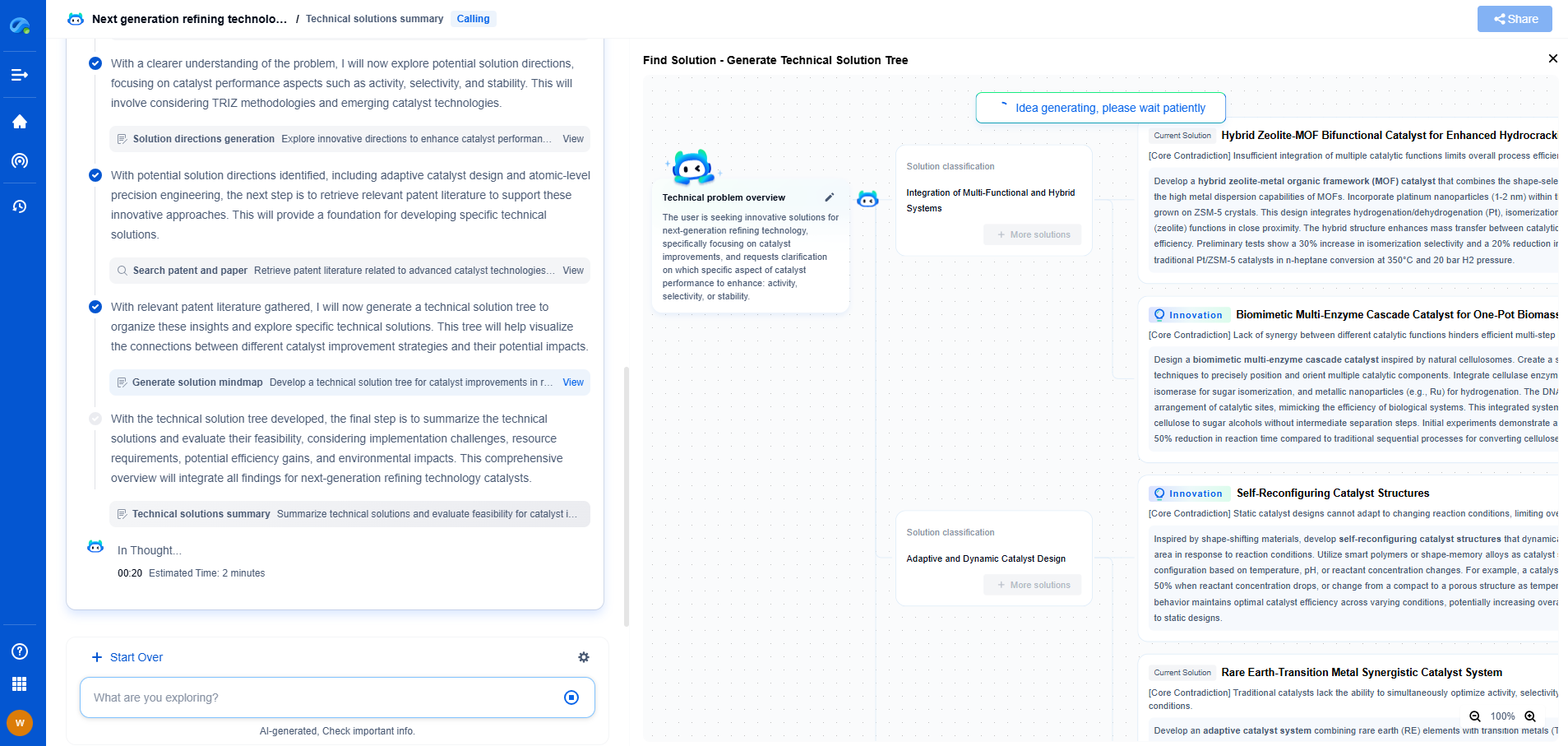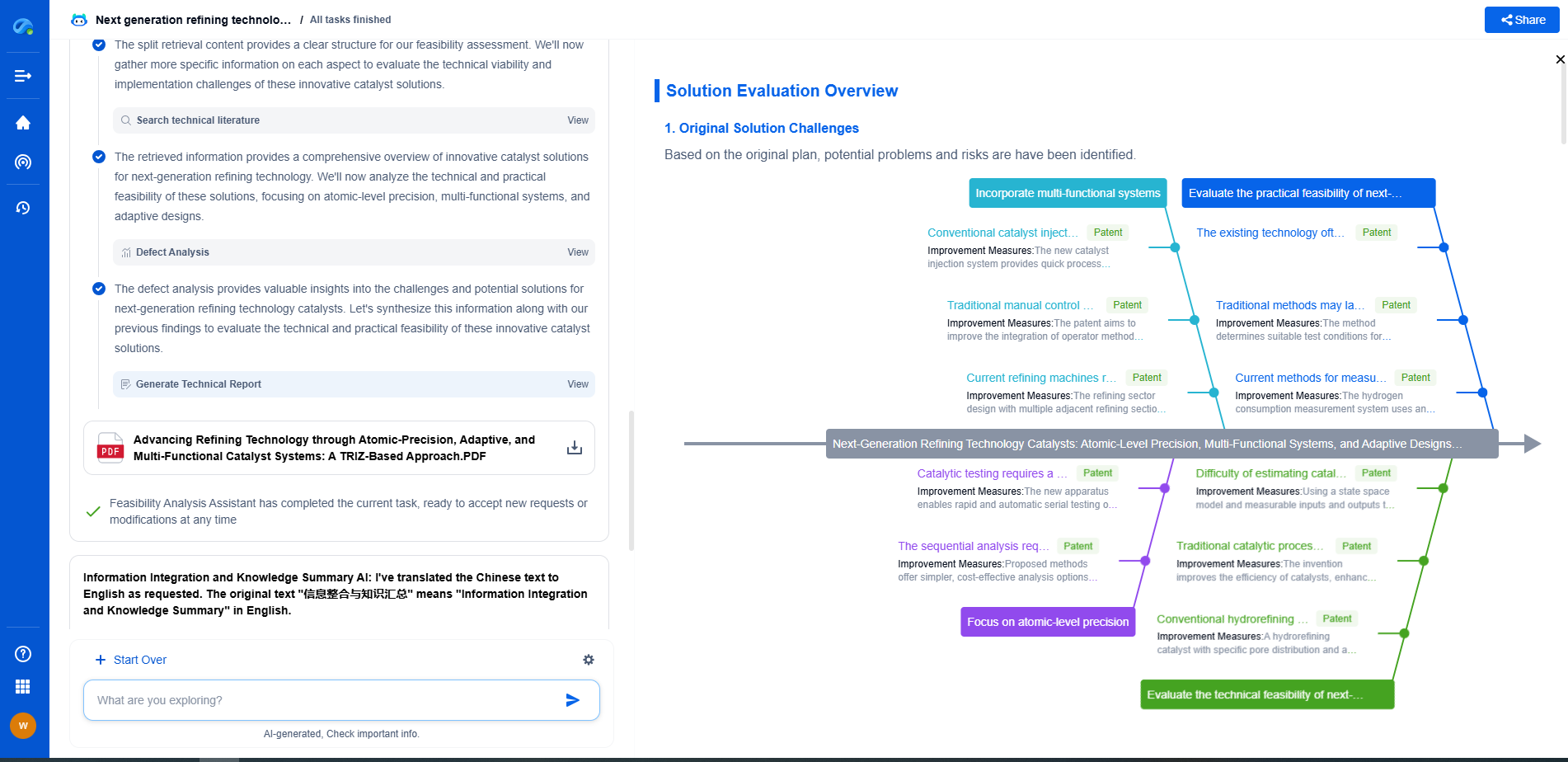Lithium Cobalt Oxide (LCO): Is It Still Relevant for Consumer Electronics?
JUN 20, 2025 |
The realm of consumer electronics has witnessed remarkable advancements over the past few decades, largely fueled by the evolution of battery technology. Among the different types of battery chemistries, Lithium Cobalt Oxide (LCO) has historically held a prominent position. But as the market evolves and new technologies emerge, it's crucial to ask: is LCO still relevant in today's consumer electronics?
Understanding Lithium Cobalt Oxide Batteries
Lithium Cobalt Oxide batteries have been a mainstay in portable electronic devices since their commercial introduction. LCO batteries are characterized by a high energy density, which makes them an ideal choice for devices where compact size and lightweight are priorities, such as smartphones, laptops, and cameras. These batteries function by intercalating lithium ions into and out of the cobalt oxide layer during discharge and charge cycles. However, the reliance on cobalt, which is expensive and has significant ethical and environmental concerns associated with its mining, poses challenges for the continued dominance of LCO batteries.
Advantages of LCO in Consumer Electronics
One of the most significant advantages of LCO batteries is their energy density. They offer a high capacity in a small form factor, which is essential for the sleek and portable designs of modern consumer electronics. Additionally, LCO batteries have a relatively simple manufacturing process and have proven to be reliable over numerous charge cycles, providing a consistent power source for devices. This reliability has cemented their position in the market for many years.
Challenges Facing LCO Batteries
Despite their advantages, LCO batteries face several challenges that question their future relevance. Safety concerns are paramount; LCO batteries are known for their thermal instability, which can lead to overheating and, in some cases, fires or explosions. This risk is exacerbated in devices that demand high power output or frequent charging cycles. Furthermore, the high cost and ethical implications associated with cobalt mining cannot be overlooked. These issues have driven research and development towards alternative battery chemistries that either use less cobalt or eliminate it altogether.
Emerging Alternatives to LCO
In response to the limitations of LCO, several alternative battery chemistries have gained traction. Lithium Iron Phosphate (LFP) batteries, for example, offer better thermal stability and are considered safer, although they come with a lower energy density. Nickel Manganese Cobalt (NMC) and Nickel Cobalt Aluminum (NCA) batteries provide a balance between energy density and stability while reducing the cobalt content, thereby addressing some of the ethical concerns tied to LCO.
The Rise of Solid-State Batteries
Another promising development is the advent of solid-state batteries. These batteries replace the liquid electrolyte with a solid one, significantly enhancing the safety profile while potentially increasing energy density. Although still in the developmental stages and not yet widely commercialized, solid-state batteries represent a potential leap forward for consumer electronics, offering an alternative to LCO that could redefine the market landscape.
Conclusion: Is LCO Still Relevant?
While Lithium Cobalt Oxide batteries have played a crucial role in the proliferation of portable consumer electronics, their future is uncertain in the face of emerging technologies and pressing ethical and safety concerns. The industry seems to be gradually shifting towards alternatives that promise better safety, lower environmental impact, and reduced reliance on cobalt. However, the current infrastructure, familiarity with LCO technology, and continuous demand for high energy density solutions mean that LCO may still have a place in certain applications in the short term. The pace of innovation and the ability of alternative technologies to meet consumer demands will ultimately dictate the future relevance of LCO in consumer electronics.
Accelerate Breakthroughs in Fuel Cell and Battery Innovation—with the Power of AI
From solid-state battery breakthroughs to high-efficiency hydrogen fuel cells, keeping pace with fast-evolving chemistries, global patent landscapes, and emerging application pathways is an ever-growing challenge for R&D and IP professionals.
Patsnap Eureka, our intelligent AI assistant built for R&D professionals in high-tech sectors, empowers you with real-time expert-level analysis, technology roadmap exploration, and strategic mapping of core patents—all within a seamless, user-friendly interface.
Whether you're optimizing cathode formulations, evaluating electrolyte stability, or navigating the crowded patent space around battery pack design, Eureka empowers you to move faster and with greater confidence.
Start your journey with Patsnap Eureka today—streamline your research, enhance decision-making, and power the future of energy with AI-driven clarity.
- R&D
- Intellectual Property
- Life Sciences
- Materials
- Tech Scout
- Unparalleled Data Quality
- Higher Quality Content
- 60% Fewer Hallucinations
Browse by: Latest US Patents, China's latest patents, Technical Efficacy Thesaurus, Application Domain, Technology Topic, Popular Technical Reports.
© 2025 PatSnap. All rights reserved.Legal|Privacy policy|Modern Slavery Act Transparency Statement|Sitemap|About US| Contact US: help@patsnap.com

